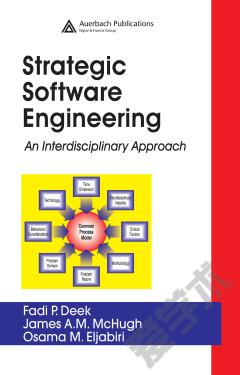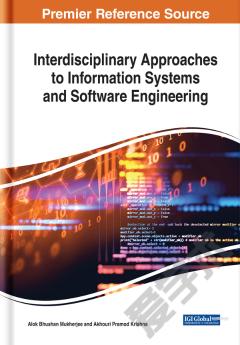Strategic Software Engineering —— An Interdisciplinary Approach
----- 战略软件工程
THE PROCESS AND ITS MODELS Software Development Strategies: Basic Planning and Control Introduction Characteristics of Software Development Strategies Life Cycle Models Risk-Reduction Models Software Development Strategies: Tools, Objects, and Reuse Introduction CASE Tools Object-Oriented and Reuse Models Software Development Strategies: Process Improvement Introduction Productivity-Driven Dynamic Process Modeling Human Factors in Development Models The Capability Maturity Model Personal and Team Software Development Models Software Development Strategies-Reinventing How It Is Done Introduction Open Source Model Agile Software Development Rapid Application Development (RAD) Models Workflow Application Models Aspect-Oriented Development An Assessment of Process Life-Cycle Models Introduction The Dimension of Time The Need for a Business Model in Software Engineering Classic Invalid Assumptions Implications of the New Business Model Role of the Problem-Solving Process in This Approach Redefining the Software Engineering Process STRATEGIES FOR SOLVING SOFTWARE PROBLEMS The Problem-Solving Process Introduction What is a Problem? What is Problem Solving? What is a Solution? Software Technology and Problem Solving Introduction Software Technology as Enabling Business Tool-What Computers Can Do Software Technology as a Limited Business Tool-What Computers Cannot Do A View of Problem Solving and Software Engineering Evolution of Software Development Strategies Introduction Current Challenges to Software Development Competing Views of Software Development The Engineering of Software The Process and the Model Progression in Software Engineering Strategies Diversification of Problem-Solving Strategies in Software Engineering Introduction Understanding Diversification in Software Engineering The Hidden Value of Differences Integration-Not Differentiation Diversity in Problem Solver Skills at the Project Management Level Diversity as Value-Adding Tool in Problem Analysis Strategies at the Problem Engineering Level Introduction Identifying Interdisciplinary Resources and Comprehensive Problem Identification Data Collection Phase Data Processing Phase Information Presentation Phase Strategies in Software Engineering INTERDISCIPLINARY FACTORS IN SOFTWARE DEVELOPMENT People and Software Engineering Introduction Interdisciplinary Background The Importance of People in the Problem-Solving Process Human-Driven Software Engineering The People Factor-Multidisciplinary Aspects The Team Factor The Customer Factor Economics and Software Engineering Introduction Economics and the Development of Software The Rationale for Software Economics The Influence of Software Economics on Software Engineering Software Economics Risk and Return Traditional Software Economics Software Cost Specialized System Development Introduction Principles of Specialized System Development Application-Based Specialized Development
{{comment.content}}








 京公网安备 11010802027623号
京公网安备 11010802027623号